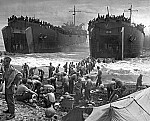January 27th 1973: The day when America's longest war ended
On January 27, 1973, a momentous event unfolded in Paris, France, that promised to bring an end to one of the most tumultuous and divisive conflicts of the 20th century—the Vietnam War. The signing of the Paris Peace Accords marked a pivotal point in history, not just for the United States and Vietnam but for the entire world, symbolizing a move towards peace after years of relentless warfare.

The long road to Paris
The journey towards the Paris Peace Accords was anything but straightforward. Initiated in 1968, the peace talks in Paris faced numerous obstacles, including disagreements over the shape of the negotiating table, which served as an early indicator of the challenges ahead. The negotiations were characterized by a delicate balance of power, with the United States seeking an honorable exit from an increasingly unpopular war, while North Vietnam aimed to secure its objectives without compromising its principles.
The involvement of South Vietnam and the Viet Cong added layers of complexity to the talks, with each party holding divergent views on the future of Vietnam. It was a diplomatic marathon that tested the resolve, patience, and flexibility of all involved.
Key provisions and immediate impact
The Paris Peace Accords included several critical provisions aimed at restoring peace in Vietnam. The immediate withdrawal of U.S. and allied troops, a comprehensive ceasefire, and the return of all prisoners of war were central to the agreement. Additionally, the accords called for the non-intervention in Vietnam's internal affairs, laying the groundwork for what was hoped to be a peaceful reconciliation process within the country.
The impact of the accords was felt immediately, with American prisoners of war returning home, marking an emotional and symbolic end to U.S. military involvement in Vietnam. However, the peace envisioned by the accords was fragile, with reports of ceasefire violations emerging soon after the ink had dried.
The unraveling of peace
Despite the hopeful outlook following the signing of the accords, peace in Vietnam was short-lived. The ceasefire was frequently violated, and the political settlement that the accords sought to establish failed to materialize. By 1975, with the fall of Saigon, it became clear that the Paris Peace Accords had not succeeded in bringing about a lasting peace. The reunification of Vietnam under communist control was a stark reminder of the limitations and challenges of diplomatic negotiations in the face of deep-seated conflict and ideological divides.
Reflections and repercussions
The legacy of the Paris Peace Accords is complex and multifaceted. For the United States, the Vietnam War and the peace process that ended it prompted a period of reflection on military engagement and foreign policy. The war's unpopularity and the divisive nature of the peace accords led to significant changes in how the U.S. approached international conflicts, including the adoption of the War Powers Act in 1973.
In Vietnam, the accords and the subsequent end of the war marked the beginning of a new era. The country faced the immense challenge of rebuilding after years of devastating conflict, addressing the physical, emotional, and psychological scars left by the war.
Conclusion: The enduring legacy of the Paris peace accords
The Paris Peace Accords remain a significant chapter in the history of the Vietnam War and international diplomacy. They highlight the complexities of negotiating peace in the midst of conflict and the challenges of achieving reconciliation and rebuilding in its aftermath. The accords serve as a reminder of the human cost of war and the enduring need for diplomatic efforts to resolve international disputes peacefully. As we reflect on their legacy, the lessons of the Paris Peace Accords continue to resonate, underscoring the value of peace, the importance of dialogue, and the need for mutual understanding in the pursuit of a more just and stable world.








